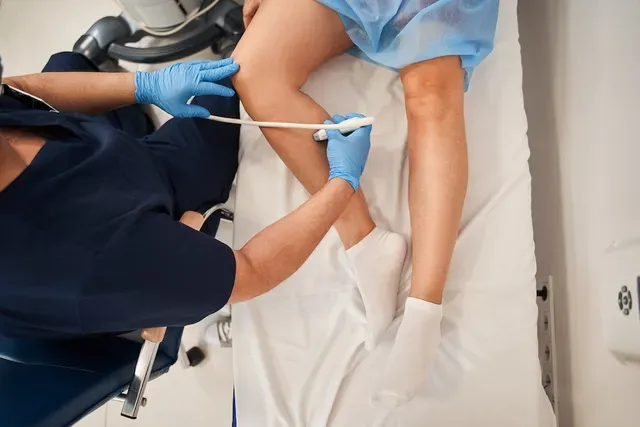Vascular ultrasounds
Board Certified Cardiologist & Vein Specialist located in Houston , Tomball and Cypress, TX

Vascular ultrasounds help find circulation problems in arteries and veins outside the heart. Yasir Akram, MD, MPH, FACC, FSCAI, and the team at Apex Heart & Vascular Center in Houston, Tomball, and Cypress, Texas, specialize in diagnosing and treating vascular problems. The team uses vascular ultrasounds to diagnose circulation problems and create targeted treatment plans. Call the office closest to you today or schedule a consultation online to learn more about vascular ultrasounds.
What are vascular ultrasounds?
Vascular ultrasounds are imaging tests that use sound waves to see how blood flows through the arteries and veins in your legs, arms, and neck. It’s a noninvasive test that looks for narrowing, blockages, or damage in blood vessels that affect circulation.
Apex Heart & Vascular Center performs many types of vascular ultrasounds including:
- Carotid artery ultrasound
- Venous ultrasound
- Arterial ultrasound
- Doppler ultrasound
Ultrasound type is based on the location of the concerning blood vessel.
When do I need a vascular ultrasound?
You may need a vascular ultrasound if you’re showing signs or symptoms of circulation problems. The test helps diagnose conditions such as:
Peripheral artery disease (PAD)
PAD is narrowing or blockages in the peripheral arteries, affecting circulation in the arms or legs. PAD usually affects the legs and may cause leg pain when walking.
Chronic venous insufficiency (CVI)
CVI is a circulation problem of the veins in the legs. The veins are too weak or damaged to push blood back to the heart and lungs, so it pools in the ankles.
Carotid artery disease
Carotid artery disease is narrowing or blockages in the main artery of the brain, increasing the risk of stroke.
Deep vein thrombosis (DVT)
A DVT is a blood clot that forms in a deep vein and may cause pain and swelling. The blood clot may break free and travel to the main artery in the lungs, causing a pulmonary embolism, a life-threatening condition that needs immediate emergency room care.
What happens during a vascular ultrasound?
Apex Heart & Vascular Center reviews the details of your vascular ultrasound at your consultation so you know what to expect. The details depend on the type of test you need; however, vascular ultrasounds are quick and painless.
During the ultrasound, a technician places a transducer on your skin near the blood vessel(s) of concern, moving the instrument back and forth to look for signs of narrowing, blockages, or damage.
What treatments do I need after a vascular ultrasound?
Treatment following a vascular ultrasound depends on the findings and severity of the condition. For carotid artery disease or PAD, the team may recommend angioplasty and stenting to open the artery and improve circulation.
For CVI, the team may recommend varicose vein ablation to close damaged veins and improve circulation.
Call Apex Heart & Vascular Center today or request an appointment online to learn more about the imaging test.
